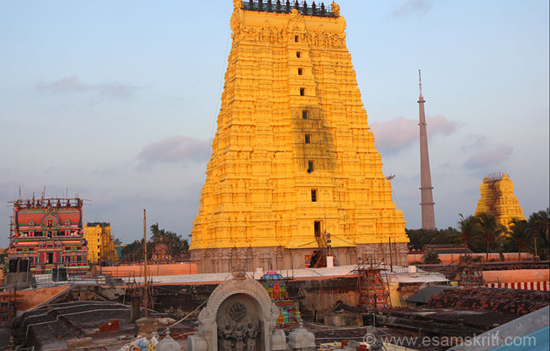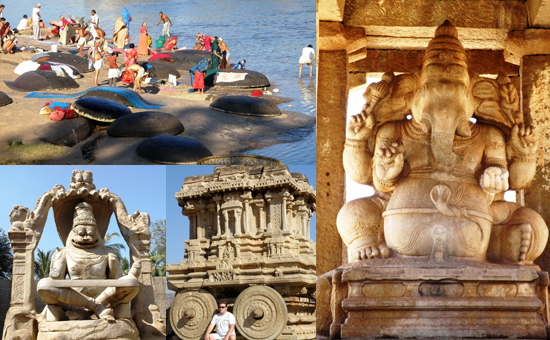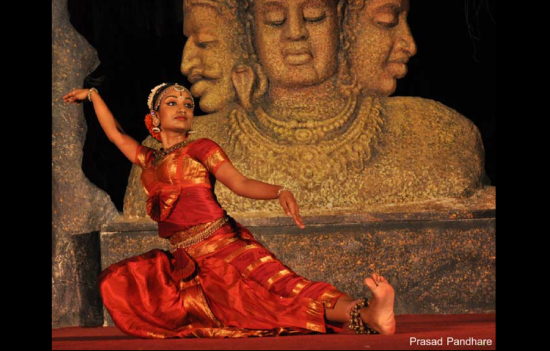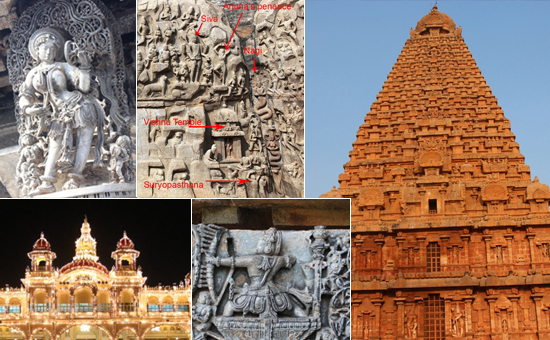- Author shares
experience of working in Coimbatore, rural Bengaluru, tips for those working in
a state outside their own, how she deals with languages issues in Karnataka/Tamil
Nadu and why Indians from the North need to make an extra effort down South.
This is the fourth
piece in our language series, the first three being Tamil
lady at Mahabalipuram learnt Hindi to promote her business, Hind
binds people of Arunachal Pradesh like Fevicol and Hindustani
is what we speak today not Hindi – Editor. Hope you enjoy Priyanka’s insightful piece.
When my Gujarati
relative visited me at my rural home near Bengaluru the taxi driver misbehaved.
He spoke rudely to her and was on the verge of becoming completely
non-responsive. Once she reached me, and I started communicating with the
driver, everything changed.
The Gujju lady kept calling him “Tamil”, when he was a Kannadiga and similar foibles that people from North/West India make. “Why are you calling a Kannadiga Tamil?” She was genuinely confused and unclear about the difference.
I calmed the fellow down, by speaking a few Kannada words and addressed him as “Anna”, a common term in south India meaning ‘brother’. In general, I vibe well with Tamil and Kannada folks. Thus, I have lived happily for years in both these states.
My Tamil skills are better than Kannada for sure. But both are fairly rudimentary. I do hope to learn at least Tamil fluently, if only to sit for Sadhguru’s Tamil satsangs. Having said that, I don't think have an ease for learning new languages.
Tamil is the Easiest Langauge 😮
 Rameshwaram Temple.
Rameshwaram Temple.
“Tamil is the easiest language to learn… claimed my domestic helper in Coimbatore numerous times. I have heard other Tamil folk claim this too. It is exasperating to say the least. Thankfully, I chose to stay in the “Hindi-est” area of the city and I managed well enough using English, Hindi and a smattering of Tamil words. My main challenge was with the watchmen, domestic helpers and plumbers - most of them genuinely didn't know anything but Tamil.
In a rare
situation, one of the plumbers who visited my house knew English very well but
continued to communicate only in Tamil. And you can imagine, I obviously did
not Tamil words for plumbing terms like pipes and taps and water flow etc. That
was frustrating but these interactions are very rare. Moreover, if I was to
keep scouting around, I will eventually find a Hindi or English speaking
plumber. Thankfully, I found an electrician who spoke wonderful Hindi, but he moved
to Dubai later on.
Once my building watchman saw me buying vegetables from a nearby vendor. He came and stood right next to me to see how I was interacting with the vegetable buyer. He wasn't trying to help… he wanted to understand how I purchase things with my abysmal (as per him) Tamil skills! It all went smoothly to his astonishment. Purchasing takes very few words.
‘Evlo’ means ‘how much’. So, I point to stuff and say “idu evlo” (how much is this?) and then I know a few numbers to understand. Pat ruba means 10 rupees. Irupat
means 20. Mupat means 30 and so on.
Anyway, most sellers will know English numbers - they are there to sell after
all.
 Hampi collage, Karnataka.
Hampi collage, Karnataka. Then
Come Kannada & Telugu
Comparatively, I
have an easier time in rural Karnataka outside Bengaluru. The plumber knew
fluent Hindi, but he was exorbitantly expensive... I missed my Tamil plumbers
from Coimbatore. Most of these villagers know a few Hindi and English words. I
add two, three Kannada words which bring smiles to their faces.
“kannada solpa solpa baratha”, I explain in my
local conversations meaning that I know a little kannada.
One of the
unexpected impacts of learning these few words of Kannada is that now they are
all mixed up with the Tamil words stored in my brain. Thus, I now speak a
strange mixed language. 😂
As it happens, the owners of my rented village house outside Bengaluru are fluent in Kannada and Telugu. I don’t know Telugu at all and Kannada only a few words. Somehow it has worked well enough. I miss being able to have long conversations with them… but for most other matters we interact through sign language mixed with English and Kannada.
A few times there
were confusions and struggles in the beginning but over time we warmed up to
each other. Their young children are in English medium schools, they are often
asked to become the mediators between me and their parents.
I must say, I have
travelled extensively in remote areas of Tamil Nadu and Karnataka as a solo
woman without knowing these languages properly. With my smattering of a few
local words and, in general, a friendly approach to people, things have gone
very well. I feel totally at home in these areas. As I have learnt more about
their culture and language, my interactions are now sharper and deeper.
Has
anyone been very aggressive due to language issues?
In (rural)
Karnataka, if I interact with locals in any kind of official capacity - as a
volunteer for a project or as a company person, then I found locals to be
aggressively wanting a Kannada speaker. It is not enough that my fellow
colleagues can speak the language, they expect each and every person on the
team to be able to speak Kannada. I found this unreasonable because people from
different backgrounds maybe in the team for different reasons. It is not
practically possible for each person to be Kannadiga only.
From what I know
of the business world - HR teams have a tough job cut out for them to hire the
best talent possible for the company. Restricting them further by insisting on
all local language speakers would be significantly detrimental to the business.
Another time I
face language issues is with the rude auto, Uber drivers in Bengaluru. They
want to use my lack of Kannada to be worse than usual.
One of the ways I diffuse aggressive situations is by saying, “I know English, Hindi, Gujarati, Marathi well and a little bit of Tamil.” With this I am trying to project that I am not simply a “Hindi speaker”. We have a deeper identity. And I am someone who can speak more than four different languages.
Language
Dynamics across Neighbouring States
 This Kuchipudi dancer from Hyderabad, performed in Mumbai, lives in Delhi.
This Kuchipudi dancer from Hyderabad, performed in Mumbai, lives in Delhi.
As it happens, Marathi is a language which many Kannadigas are fond of.
Especially folks living in North Karnataka, close to the border with
Maharashtra, have common words with Marathi. So, sometimes, they actually agree
to talk to me in Marathi! (woohoo!)
Moreover, that
particular area around the ashram is very close to the Andhra Pradesh border
and I am told it was traditionally a Telugu-speaking region. Every now and then
I come across people who can only speak Telugu and not Kannada!
While I have
managed to learn a smattering of Kannada words, I must say, learning Telugu, is
beyond my meagre mental capabilities at this point of time. Moreover, if I
start speaking a mixed language of Kannada, Tamil and Telugu - I feel the south
Indian states might want to exile me from their territory altogether.
About
the ongoing spate of language aggression incidents
I feel that many
of these issues are happening within a particular context. If they feel a big
organization like banks or NGOs are going to bring in a totally different
culture and language or if the visitor is disrespectful towards local sentiments
then already rude individuals will use this pretext to act worse.
Tips
when visiting a state/country that has a language other than your own
I think that all
visitors to a new country or state where a different language is predominant -
should learn a few words - the basic greetings, how to politely address locals,
some numbers and such few things. Especially, with the technology available at
our fingertips, this little bit is so easy to do!
Some of my close
friends were so keen on having a deep experience of Japan on their first trip there,
that they actually enrolled for a Japanese language course and even got their
first level certificates. So, learning a few words of any new language we would
be encountering is possible!
North
Indians Need to Make an Extra Effort
 There is more to India than the Taj-South.
There is more to India than the Taj-South.
I feel North
Indians need to understand the terrible ignorance they have of the deep and
nuanced culture of south Indian states and need to make extra effort to
understand these basics. This is needed not only if they are traveling to the
south, but also to interact and create a harmonious environment for south
Indians living amongst them.
“I won’t go to North India because they make fun of how I speak”,
is a remark I have heard from some of my absolutely wonderful friends from south
India. These are wonderful people, willing to speak Hindi but they are met with
insensitive callousness.
It is a loss for
the North Indians that unfortunately due to misrepresentations on various
levels including the entertainment media - they are missing out on the wealth
of south Indian people and its depth of culture.
To read all
articles by author
Author Priyanka Dalal has a profound love for spiritual exploration
and travel. She documents her adventures on her blog MapRoute and youtube channel InSpirituality
To see all
albums on Tamil Nadu
To see all albums on Karnataka
To see all albums on Kerala